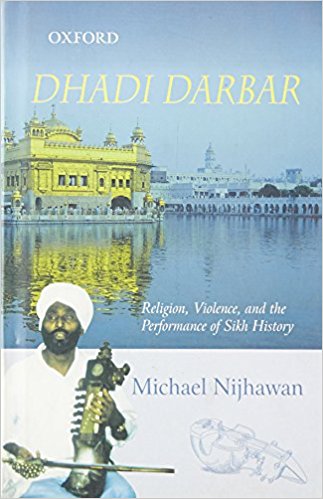Dhadhi parampara, according to Nijhawan, is ‘a tradition or genre of bardic performance that constitutes one of the extant forms of oral epic performance in South Asia. The contents of dhadhi song and narrative are mostly heroic tales of legendary and historical figures’. The title of this book, Dhadhi Darbar, would seem to denote a musicological probe; instead, it claims to be an anthropological study of the dhadhi response to socio-political persecution. The author actually seeks to find out how a tradition that entails a history of cultural and religious pluralism responds to situations of crisis and violence. Apart from offering the first systematic analysis of the dhadhi tradition of song performance that has deep historical roots in the (geographical) Punjab, Dhadhi Darbar also claims to be a study of dhadhi traditions’ historiography and ethnography, tracing significant changes in generic form and ideological content.
Nijhawan analyses select excerpts from various carefully chosen dhadhi texts, themes and ethnographic narratives ‘to demonstrate the relation of this genre to agendas of religious and political identity formation’. In this book, he also seeks to search for the strategies of cultural performers towards modern identity politics and the manner in which they negotiate their social status in the realm of society and religion.


Wow, wonderful weblog format! How long have you ever been blogging for?
you made blogging look easy. The entire glance of your website is magnificent, let
alone the content! You can see similar here
dobry sklep